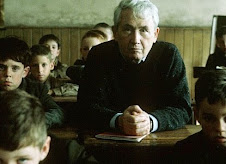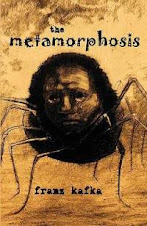This is an amazing biographical account of super human Greg Mortenson! I was first attracted to this book because Mortenson talks about his attempted summit of K2 and I've mainly read about Mount Everest Expeditions and about Nepali Sherpa Guides so reading about Pakistani guides and the small mountain villages surrounding K2 has been really cool. I am just always SO impressed to read about people doing such amazing things without really realizing how great of an impact they're making. He was just a poor nurse who liked to mountain climb so much that he just lived in his car so he'd have the money to keep climbing- that is pretty cool I have to say.
The story takes off from his failure to summit K2 and his adventures in getting lost only to be "found" right where he was needed in a small village of Korphe. There his passion flamed on and he began trying to build schools for girls and boys, focussing on girls rights to an education. He had a whole lot of rocky moments where he didn't have the funds or materials to complete schools or water systems for poor villages all around Afghanistan and Pakistan.
I'm also really jealous that he became so close to people that don't generally take to "outsiders" and was quickly able to pick up 2-3 languages during the course of his work. However, I think the most important aspect of his book is the insight he has with these unknown and misunderstood cultures and religions. He addresses 9/11 and terrorism, understanding that these acts of violence truly result from a lack of education-- I am once again talking about forced ignorance. With the schools that he has been building (with A LOT of of help) are educating our youth, boys and girls. And I just really hope people will stop being ignorant themselves and understand that there are extremes in every religion...
Some important quotes:
"He didn't need to travel to the other side of the world to be useful, Mortenson thought [he helped a lot of people as a nurse]. He was helping here. But each shift, and the dollars accruing in his Bank of America account [from donors], brought Mortenson closer to the day he could resume construction of the Korphe school".
As he was at home with his family he realized he had to act:
"Mortenson, feeling helpless, paced his basement between calls to his contacts in Pakistan's military. And the reports he heard robbed him of the few hours of sleep that he ordinarily managed. Streams of refugees from the fighting were crossing the high passes [to avoid the war] on foot and approaching Skardu, exhausted, injured, and badly in need of services no one in Baltistan was equipped to provide. The answers weren't in the stacks of books piling ever higher against the walls and spilling off shelves onto the floor. They were in Pakistan".
At the inauguration of the Kuardu school:
' "I request America to look into our hearts," Abbas continued, his voice straining with emotion, "and see that the great majority of us are not terrorists, but good and simple people. Our land is stricken with poverty because we are without education. But today, another candle of knowledge has been lit. In the name of Allah the Almighty, may it light our way out of the darkness we find ouselves in." '
"And at first, Mortenson had supported the war in Afghanistan. But as he read accounts of increasing civilian casualties, and heard details during phone calls to his staff in the Afghan refugee camps about the numbers of children who were being killed when they mistakenly picked up the bright yellow pods of unexploded cluster bombs, which closely resembled the yellow military food packets American planes were also dropping as a humanitarian gesture, his attitude began to change".
Mortenson's encounter with a woman named Uzra who refused to let the bombings of her school prevent the children from being taught:
" "I was just overwhelmed listening to Uzra's story," Mortenson says. "Here was this strong, proud woman trying to do the impossible. Her school's boundary wall had been blown to rubble. The roof had fallen in. Still, she was coming to work every day and putting the place back together because she was passionate about education being the only way to solve Afghanistan's problems". "
Mortenson's reaction to the War on Terror:
"The time for us to turn all the suffering we'd helped to cause in Afghanistan into something positive was slipping away. I was so upset I paced the aisles of the planes all the way to Washington [D.C. , to talk to them about the men and women not being paid for their work in Afghanistan]," Mortenson says. "If we couldn't do something as simple as seeing that a hero like Uzra gets her forty-dollar a-month salary, then how could we ever hope to do the hard work it takes to win the war on terror?".
About our true enemy:
"The enemy is ignorance. The only way to defeat it is to build relationships with these people, to draw them into the modern world with education and business. Otherwise, the fight will go on forever".
I would really encourage EVERYONE to read this as it is very inspirational and can definitely have a great impact on your life. For one tiny little example- I've always been outdoorsey and I LOVE to climb and hike- this book got me into rock climbing and helps people understand our differences and finally see our similarities.
The fight is still ongoing and Greg continues to build schools for our children. Check out www.threecupsoftea.com
Saturday, August 22, 2009
Angela's Ashes- Frank McCourt
So-- this was a tough read about hardcore poverty, religion and ignorance. By the end of the novel (which is autobiographical) fried bread, mashed bread with sugar and especially a hardboiled egg, sounded like heaven to me! It makes me feel terrible listening to little Frankie and his brothers having the luck of eating bread and jam, stealing an apple hear and there and enjoying the sweet little toffee once in a while when I can have every food item he mentions in a matter of minutes. He makes my childhood poverty look like the life of royalty.
His is a society of simplicity and therefore ridiculous complexity. What I mean by that is every time one hear's about or visits a small "simple" town where everyone "obeys" the church (tis in quotation b/c most never really do obey the church, they just sin in secret) and does so without question but the younger generation is always punished for this simplicity. They grow up in forced ignorance and like Frankie, get in big trouble just trying to understand things about the world they were never taught (like sex, which I think is implied).
McCourt's writing style does a GREAT job reflecting that forced ignorance. The lack of comas throughout the text were at first annoying to me but then I realized that it forced me to read without breaking/pausing, much the way a child talks. This was important to create a relationship between the author and the reader.
And what of the title?? While I was reading I anticipated the death of Frankie's mam, Angela. I dreaded it because I thought I knew it was coming and I hated to think about what would happen to the children (those that had survived the sickness and the hunger). I thought her death would force her husband from the North to sober up or force the children into the orphanage. But she did not die. Atleast not physically. I wonder if her 'ashes' symbolize the deathes of three of her children, her husbands problem with the drink and later Angela's decision to stop having sex with her husband to avoid another pregnancy. Perhaps it is her soul that did not survive the life Frankie writes about.
His is a society of simplicity and therefore ridiculous complexity. What I mean by that is every time one hear's about or visits a small "simple" town where everyone "obeys" the church (tis in quotation b/c most never really do obey the church, they just sin in secret) and does so without question but the younger generation is always punished for this simplicity. They grow up in forced ignorance and like Frankie, get in big trouble just trying to understand things about the world they were never taught (like sex, which I think is implied).
McCourt's writing style does a GREAT job reflecting that forced ignorance. The lack of comas throughout the text were at first annoying to me but then I realized that it forced me to read without breaking/pausing, much the way a child talks. This was important to create a relationship between the author and the reader.
And what of the title?? While I was reading I anticipated the death of Frankie's mam, Angela. I dreaded it because I thought I knew it was coming and I hated to think about what would happen to the children (those that had survived the sickness and the hunger). I thought her death would force her husband from the North to sober up or force the children into the orphanage. But she did not die. Atleast not physically. I wonder if her 'ashes' symbolize the deathes of three of her children, her husbands problem with the drink and later Angela's decision to stop having sex with her husband to avoid another pregnancy. Perhaps it is her soul that did not survive the life Frankie writes about.
Subscribe to:
Comments (Atom)








